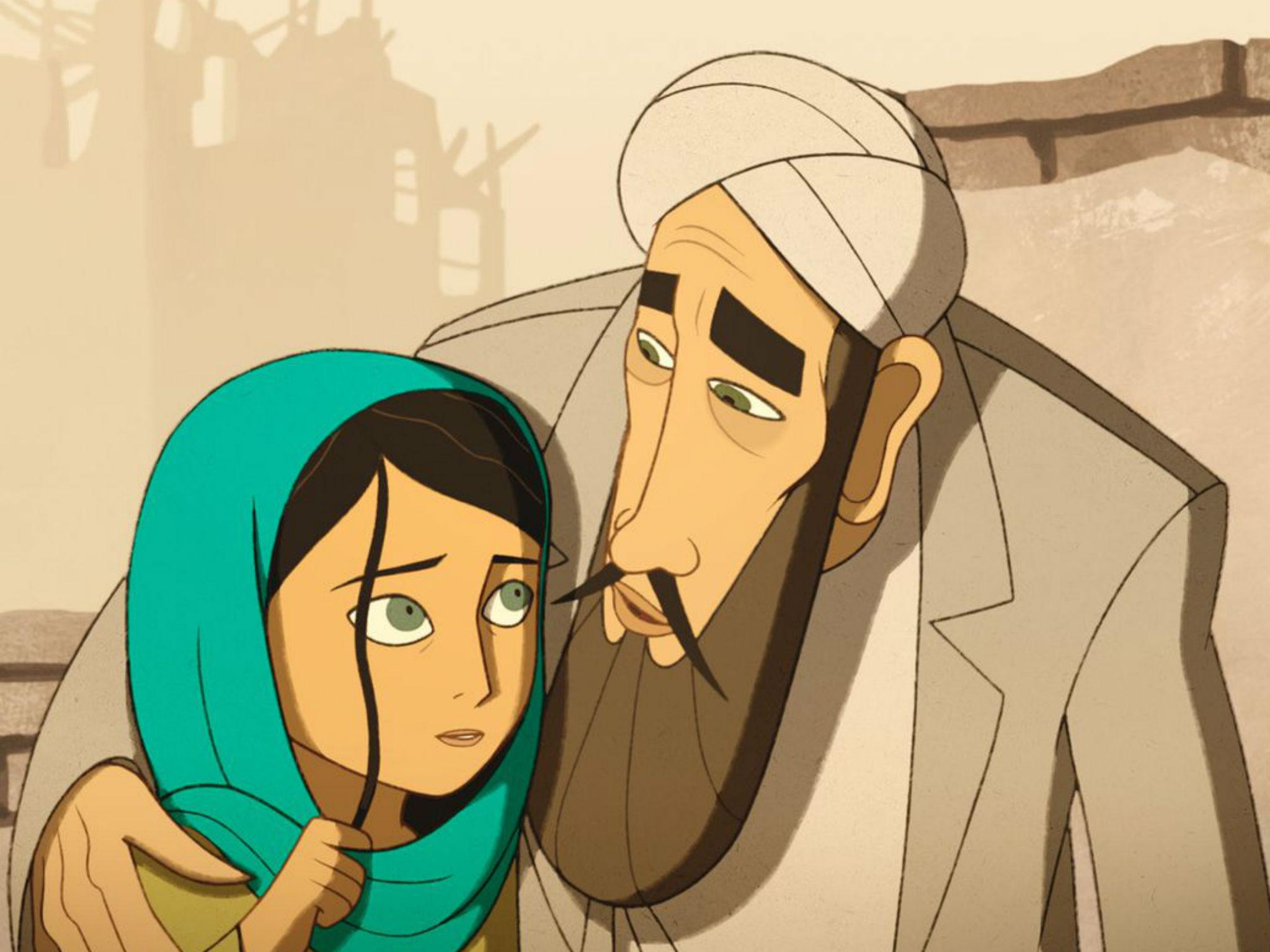The Breadwinner film review: Uplifting animation despite bleak premise
Dir: Nora Twomey, 94 mins, voiced by Saara Chaudry, Laara Sadiq, Shaista Latif, Ali Badshah

Your support helps us to tell the story
From reproductive rights to climate change to Big Tech, The Independent is on the ground when the story is developing. Whether it's investigating the financials of Elon Musk's pro-Trump PAC or producing our latest documentary, 'The A Word', which shines a light on the American women fighting for reproductive rights, we know how important it is to parse out the facts from the messaging.
At such a critical moment in US history, we need reporters on the ground. Your donation allows us to keep sending journalists to speak to both sides of the story.
The Independent is trusted by Americans across the entire political spectrum. And unlike many other quality news outlets, we choose not to lock Americans out of our reporting and analysis with paywalls. We believe quality journalism should be available to everyone, paid for by those who can afford it.
Your support makes all the difference.The most dispiriting aspect of this otherwise enrapturing Oscar-nominated animated feature is that its storyline still seems so current. The film depicts an Afghan society in which women don’t have a face. It is set during the Taliban rule, which lasted from the mid-1990s until late 2001, but this doesn’t feel like a period piece. Seventeen years after the Taliban were ousted from power in Afghanistan following the US invasion, the plight of women in the country appears hardly to have improved.
For a cartoon aimed at least partly at kids, The Breadwinner starts from a bleak premise. We encounter 11-year-old Parvana on the streets with her father, a schoolteacher and storyteller who lost his leg in the war. They’re trying to sell family possessions to raise money for food. They’re in near poverty but, as the father keeps on reminding her, “when all else is gone,” they still have their stories. The father spins colourful yarns about the country’s myths and history.
The world here is very similar to that depicted in earlier Afghan-set features like Mohsen Makhmalbaf’s Kandahar (2001) or Siddiq Barmak’s Osama (2003). Women aren’t allowed to work or to draw attention to themselves in public in any way. We are in a society in which any sign of modernity is frowned on. There are no cellphones or TVs. Even books are regarded as contraband. Only the sight of fighter jets flying over Kabul or of guns reminds us that we are not in medieval times.
The film, based on Deborah Ellis’ young adult novel, is executive produced by Angelina Jolie. It is about Parvana’s heroic efforts to keep her family fed and to rescue her father, who is arrested on trumped up charges by the Taliban. In order to be allowed onto the streets, she has to disguise herself as a boy. This requires cutting off her hair and wearing clothes belonging to an older, deceased brother.
The Breadwinner is released in time for half-term in a slot where you would generally expect to find family-oriented Hollywood escapism. Presumably, to lighten the tone, director Nora Twomey and her team at Irish company Cartoon Salon tackle their story as if it’s a Kabul-set version of Huck Finn. Parvana and an old school friend, also masquerading as a boy, scour the streets for food and money. “When you’re a boy, you can do anything you want,” they enthuse about the freedom that their new identities give them. There is a film within the film. Parvana, who has a very vivid imagination, tells stories to her toddler brother about a child taking on a dangerous “Elephant King”.
This enables the filmmakers to include very colourful animation in which the fight against the Taliban is reimagined as an expressionistic fairytale. There is plenty of colour and lyricism in the film as a whole, even if scenes of the girl’s mother being beaten up by Taliban supporters or of Parvana herself coming home every day with cuts and bruises may upset younger viewers. Incidental details can also be unsettling, for example, the image of a butcher with a cleaver whose smock is spattered with tiny specks of blood, or the slow-motion shot of someone crying or, most disturbing of all, the scene in which a mother grabs a knife by its blade.
Twomey and her colleagues were also behind the earlier, Oscar-nominated features, Song Of The Sea and The Secret Of Kells – mystical stories rooted in Irish folklore. The new film is set in Kabul but shares some of their fantasy elements as well as a similar visual style.
At times, the narrative stretches belief. We see Parvana make her way across the desert not once but twice to the prison in which her father is locked up. The more whimsical elements risk seeming incongruous given the extreme suffering endured by those around the heroine. We have references to children being killed in land mines, scenes in which characters are close to starvation, and a few peeks at prison guards seemingly preparing to slaughter inmates. This is most certainly not what you get in Minions or Pixar films. Twomey simply can’t explain why Parvana’s former schoolmate has become a young bully and informer for the Taliban or why a male cousin behaves with such callous brutality toward the family.
Thankfully, though, the filmmakers never preach at us. We see events from Parvana’s childlike point of view. She is so busy trying to survive and to rescue her father that she doesn’t have time to mope. Her good humour and defiance stop the film from seeming too grim. She encounters kindness in unlikely places. Against the odds, the tone here is optimistic about human nature. The film even manages to be uplifting, a small miracle given the darkness of its themes.
Join our commenting forum
Join thought-provoking conversations, follow other Independent readers and see their replies
Comments